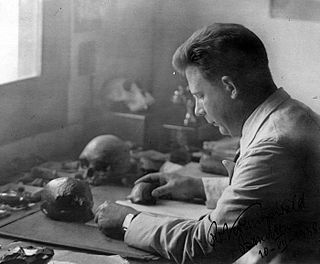Цитата Сьюзен Зонтаг
Становление человека есть история исчерпания его возможностей.
Темы цитат
Связанные цитаты
Скорость — это форма экстаза, подаренная человеку технической революцией. В отличие от мотоциклиста, бегун всегда присутствует в своем теле, постоянно вынужден думать о своих мозолях, о своем истощении; когда он бежит, он чувствует свой вес, свой возраст, больше, чем когда-либо, сознает себя и время своей жизни. Все это меняется, когда человек делегирует машине способность скорости: с этого момента его собственное тело оказывается вне процесса, и он отдается скорости бестелесной, нематериальной, чистой скорости, самой скорости, экстазной скорости.
Каждый человек должен написать краткую историю своей жизни: свое происхождение, свое рождение, свою религию, когда он был крещен и кем, когда был посвящен, во что и кем — дать краткий очерк всех своих миссий и всех его официальные действия и отношения Бога с ним. Тогда, если бы он умер и историки захотели опубликовать его историю, им было бы на что опереться.
Так называемый новый русский человек характеризуется главным образом своим полным истощением. Вы можете задаться вопросом, есть ли у него силы, чтобы насладиться вновь обретенной свободой. Он подобен бегуну на длинные дистанции, который, дойдя до финиша, не в состоянии даже поднять руки в победном жесте.
Человек не обращался в своих вопросах к земле, на которой он стоял, до удивительно поздней стадии развития своего стремления к знанию. И ответы, которые он получил на вопросы: «Откуда я?», «Что такое человек?», хотя и сделали его беднее на несколько иллюзий, но взамен дали ему знание своего прошлого, более обширное, чем он мог бы. когда-либо мечтал. Ибо оказалось, что история жизни была и его историей.
Что такое великий человек, оставивший след в истории? Каждый раз, если мы вдумаемся достаточно далеко, он оказывается человеком, который проглядел неразбериху момента и увидел связанную с этим моральную проблему; это человек, который отказался от искажения своего чувства справедливости; он слушал свою совесть до тех пор, пока совесть не стала зовом трубы для единомышленников, чтобы они собрались вокруг него и вместе, с взаимной целью и взаимопомощью, создали новый период в истории.
Геология быстро занимает свое место в качестве введения в высшую историю человека. Если автор стремился возвысить излюбленную науку, то он желал, чтобы человек, в котором завершилась геологическая история, исполнились пророчества последующих веков, мог лучше понять собственное благородство и истинную цель своего существования. .
Человек вдруг осознает, что необдуманной эксплуатацией природы он рискует уничтожить ее и стать в свою очередь жертвой этой деградации. Не только материальная среда становится постоянной угрозой — загрязнение и отбросы, новые болезни и абсолютная разрушительная способность — но и человеческая структура больше не находится под контролем человека, тем самым создавая среду завтрашнего дня, которая вполне может оказаться невыносимой. Это широкомасштабная социальная проблема, затрагивающая всю человеческую семью.



































